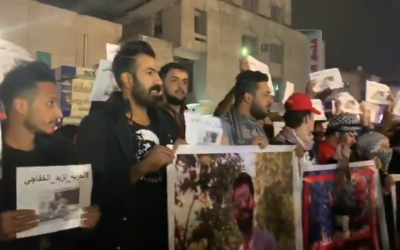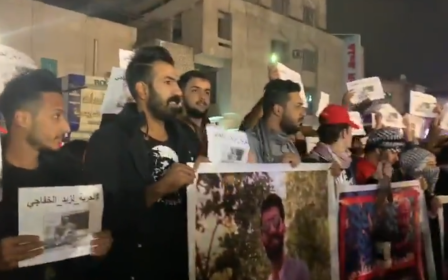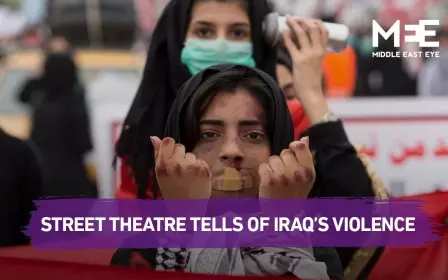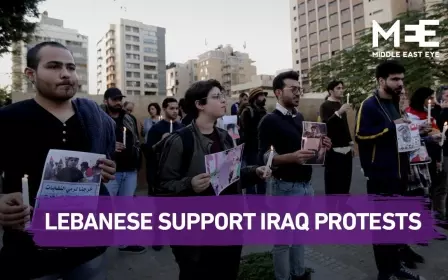US Treasury sanctions Iran-backed officials and businessmen in Iraq
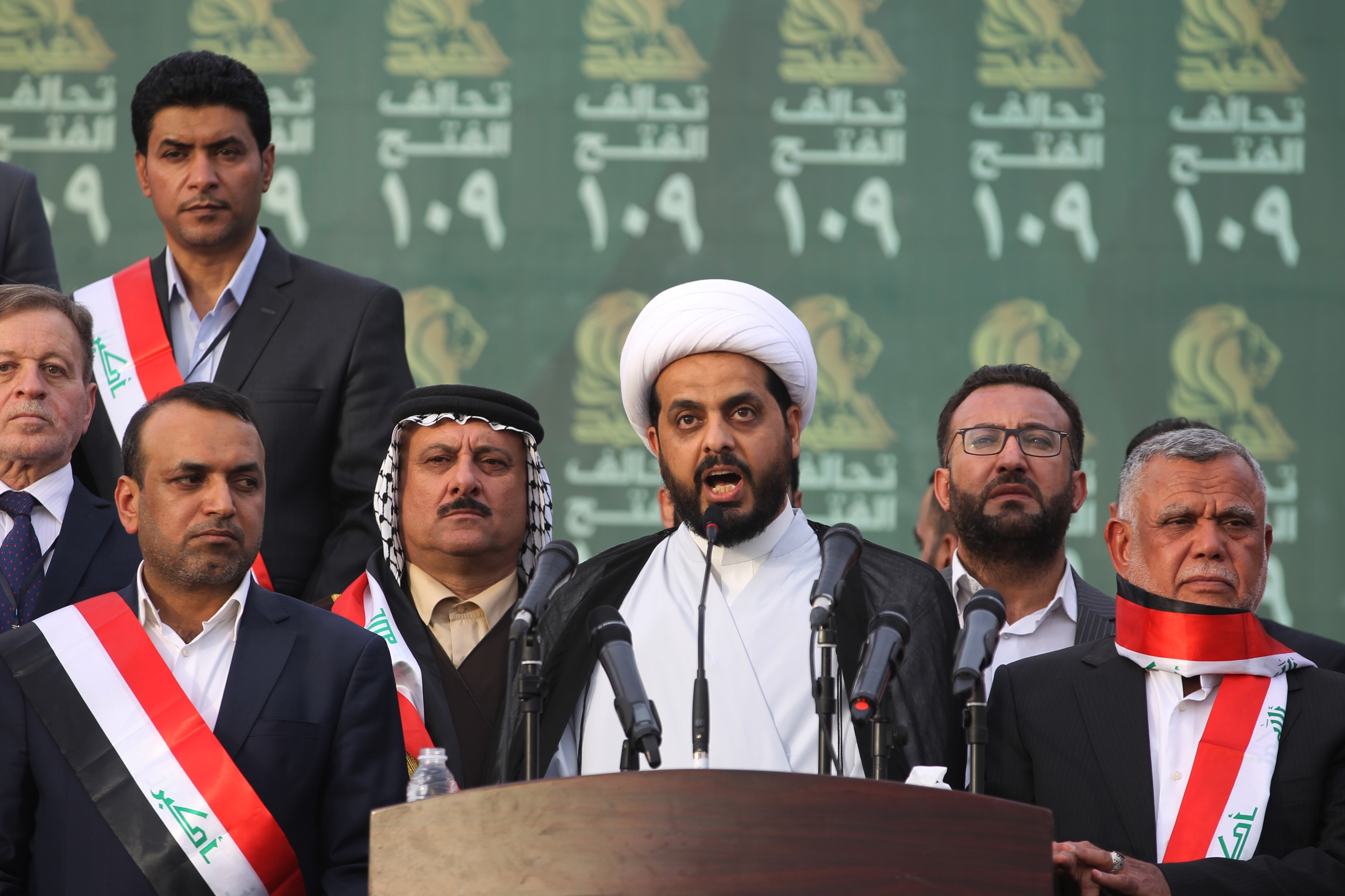
The US has slapped sanctions on a number of Iran-backed militia leaders in Iraq over allegations they were involved in the abuse of protesters.
US Secretary of State Mike Pompeo said in a statement that Iraqis "want their country back" as the death toll in over two months of protests reached over 430 people killed.
"They are calling for genuine reform and accountability and for trustworthy leaders who will put Iraq's national interests first," he said.
Among those targeted by the sanctions is Qais al-Khazali, head of the powerful Asa'ib Ahl al-Haq (AAH) militia, which has close ties to Iran.
Also targeted were Khazali's brother Laith al-Khazali, and Hussein Falih al-Lami, the security chief of the Hashd al-Shaabi, the umbrella grouping which includes AAH.
The Treasury Department said in a statement that groups led by the three paramilitary leaders "opened fire on peaceful protests, killing dozens of innocent civilians". Reuters reported last month that Lami, known also as Abu Zainab al-Lami, had directed fighters to open fire on protesters.
Iraqi paramilitary groups deny any role in the deaths of protesters, who have demonstrated against the government for more than two months. Security forces have killed more than 400 mostly unarmed protesters, police and medics say.
The new sanctions also targeted Iraqi businessman Khamis al-Khanjar for alleged corruption, the statement said.
The sanctions freeze any US assets held by the leaders and prohibit Americans from doing business with them.
Senior US Treasury officials said the violent crackdown on protests was "causing even more political instability".
"Iraqis have a fundamental right to a political process that is free from foreign malign influence and the corruption that both comes with it and fuels it," one of the officials said.
They said the militia leaders had been involved in forced disappearances and abductions of activists.
Iran-backed armed groups and politicians have dominated Iraq's state institutions since a US-led invasion in 2003 that toppled dictator Saddam Hussein, plunged the country into years of civil war and destroyed infrastructure.
Iraqi protesters say the groups that dominate the government have kept people poor and jobless through corruption and have failed to repair the country despite two years of relative calm after the defeat of the Islamic State militant group.
Last week, Iraqi demonstrators forced the resignation of Prime Minister Adel Abdul Mahdi, who resigned after the intervention of top Shia cleric Ali Sistani. He said he will stay on in a caretaker capacity until a new government is chosen.
Asked about whether sanctions were designed to distance the militia leaders from the process of forming a new government, one of the treasury officials said: "The timing is quite deliberate... Iraq's people are demanding a government that is free and clear of foreign interference."
Tension between Washington and Tehran has ramped up as US President Donald Trump's administration blames Iran for a series of attacks on oil infrastructure in the Gulf and bases hosting US troops in Iraq. Iran denies involvement in the attacks.
Iraqi paramilitaries have in turn accused the United States and Israel of attacks on their own installations.
Middle East Eye propose une couverture et une analyse indépendantes et incomparables du Moyen-Orient, de l’Afrique du Nord et d’autres régions du monde. Pour en savoir plus sur la reprise de ce contenu et les frais qui s’appliquent, veuillez remplir ce formulaire [en anglais]. Pour en savoir plus sur MEE, cliquez ici [en anglais].


